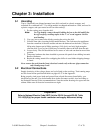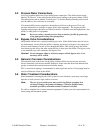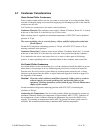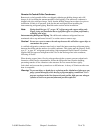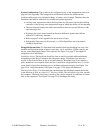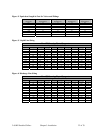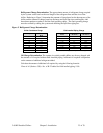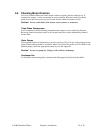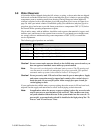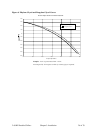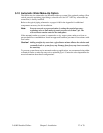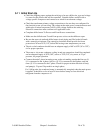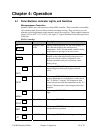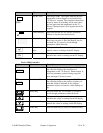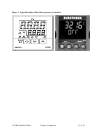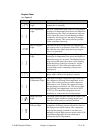
2-40 HP Portable Chillers Chapter 3: Installation 25 of 70
3-9 Water Reservoir
All portable chillers shipped during the fall, winter, or spring, or those units that are shipped
from stock are flushed at the factory with a water/ethylene glycol solution to prevent piping
components prone to retaining water from freezing. During startup and when additional
solution is required, refer to the ethylene glycol and propylene glycol curves in Figure 6 on
page 26. Add a pre-mixed solution of industrial quality (not automotive) ethylene glycol or
propylene glycol and water to provide freeze protection to a temperature 20ºF (11ºC) below
the normal chiller operating temperature set point.
Glycol and/or water, with an inhibitor, should be used to protect the materials (copper, steel,
stainless steel, and bronze) in the system from corrosion. If you intend to use straight water,
we strongly advise a minimum leaving water temperature of 50ºF (10ºC) or contact the
service department.
The following glycol products are available:
Part Number Description
A0541358 Ethylene glycol, 5 gallons (18.9 liters)
A0539637 Ethylene glycol, 55 gallons (208.2 liters)
A0542990 Propylene glycol, 5 gallons (18.9 liters)
A0542991 Propylene glycol, 55 gallons (208.2 liters)
Caution! Do not connect make-up water directly to the chilled water reservoir unless you
have an approved automatic water make-up system installed.
Note: The reservoir is not designed to withstand water pressure. The fill opening and
vent line must be vented to the atmosphere for proper operation. The optional
automatic make-up system is described in section 3-10 on page 27.
Caution! Do not pressurize tank. Fill and vent lines must be open to atmosphere. Supply
and return connections must be trapped and vented to allow vertical risers to
drain into tank. Do not overfill system. Allow enough free space in tank for
vertical piping to drain.
If your application has chilled water or process piping above the reservoir fill and vent level,
trap and vent the supply and return lines to allow vertical piping to drain into tank.
Note: In applications where the process or process piping is above the reservoir, take
steps to prevent over pressurization of the reservoir. This condition can occur
on system shutdown when the water in the system drains into the reservoir. To
prevent this, a vacuum breaker should be installed at the high point of the “To
Process” and “From Process” lines.



